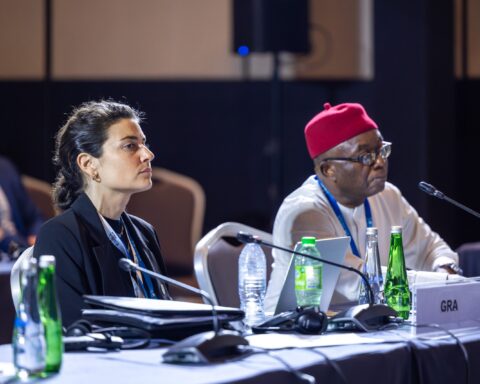World leaders and stakeholders at the 29th United Nations Climate Change Conference (COP29) have made significant commitments to accelerate the global transition to renewable energy, with key pledges that could shape Africa’s and Nigeria’s energy future.
The conference, held in Baku, Azerbaijan, focused on addressing the challenges of energy variability, decarbonization, and the integration of renewables into global energy systems.
Among the highlights were three pivotal commitments that promise transformative impacts, especially for countries in the Global South.
Global Energy Storage and Grids Pledge
This pledge aims to add 1,500 gigawatts (GW) of energy storage capacity by 2030, a critical step for addressing the variability of renewable energy sources such as solar and wind.
It also includes refurbishing or constructing 25 million kilometers of transmission grids globally to facilitate the seamless integration of renewable energy into power systems.
These advancements are expected to benefit African countries, including Nigeria, by providing technical support and infrastructure for improved grid stability and access to cleaner energy sources.
Green Energy Zones and Corridors Pledge
Countries have committed to establishing green energy zones and corridors that connect renewable energy production hubs to consumption centers.
This initiative will ensure secure and cost-effective transmission of renewable energy across long distances, an essential requirement for regions like Africa, where vast renewable energy resources are often located far from population and industrial centers.
Nigeria, with its abundant solar potential in the northern region, stands to benefit significantly from this initiative.
Hydrogen Declaration
The Hydrogen Declaration commits endorsers to scaling up renewable and low-carbon hydrogen production while phasing out fossil-based hydrogen.
This commitment signals a major shift towards clean hydrogen technologies, seen as a key component of global decarbonization.
For Nigeria, which has been exploring hydrogen as an alternative energy source, this global momentum could catalyze investments and technology transfer in the emerging sector.
Implications for Nigeria
These commitments align with Nigeria’s Energy Transition Plan, which aims to achieve net-zero emissions by 2060 while providing energy access to millions of underserved citizens.
The pledges could attract international support for the country’s renewable energy projects, particularly in solar energy and hydrogen development.
Experts believe the outcomes of COP29 are a step forward in addressing climate change and achieving a just energy transition.
However, stakeholders in Nigeria emphasize the need for robust policies, financing, and political will to maximize the benefits of these global commitments.
As the world moves closer to a sustainable energy future, Africa, and Nigeria in particular, must seize this opportunity to harness its renewable energy potential for economic growth and environmental sustainability.
By Dare Akogun







